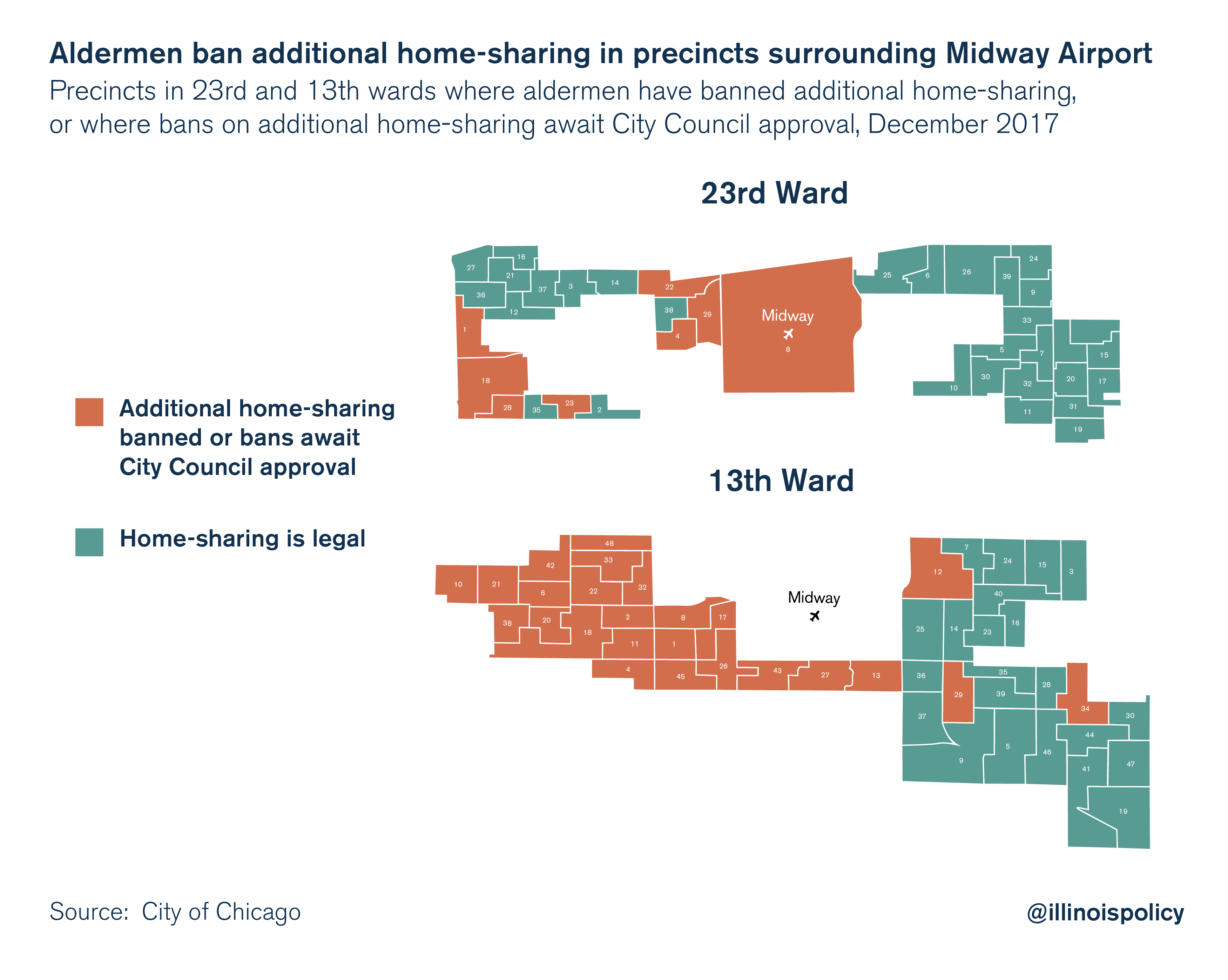Madigan’s alderman moves to squash Airbnb near Midway Airport
Chicago Alderman Marty Quinn is attempting to squeeze out home-sharing in the 13th Ward.
Living in close proximity to a major airport surely has its downsides.
But with the popularization of home-sharing services such as Airbnb, leasing one’s room or home to travelers can provide a needed source of extra income for Chicagoans who live near Midway or O’Hare airports.
Some city aldermen are looking to change that.
On Dec. 13, Alderman Marty Quinn, 13th Ward, introduced two proposals to Chicago City Council that would put an end to new or additional home-sharing and vacation rentals, including through online platforms such as Airbnb, in select precincts within his district. Quinn’s ward overlaps with Illinois House Speaker Mike Madigan’s legislative district, and the two share an office.
Quinn pledged in June to ban home-sharing services in his ward altogether, and is well on his way to doing so. In 27 precincts Quinn represents, new home-sharing rentals are either banned or awaiting City Council’s approval for a ban, according to the Chicago Sun-Times. If Quinn succeeds in expanding this effort, the 13th Ward would be the only one in the city with an outright ban on future home-sharing licensees.
Alderman Michael Zalewski, 23rd Ward, has followed Quinn’s lead. In October, the Sun-Times reported that the City Council’s License Committee agreed to recommend a ban on new or additional home-sharing in three of Zalewski’s precincts. While Quinn’s ward covers the area south of Midway, Zalewski’s ward surrounds the north side of the airport.

Quinn’s and Zalewski’s actions are a setback for Chicago homeowners seeking extra income to pay rising property tax bills.
There are nearly 4,000 active Airbnb hosts in Chicago, according to data and analytics company AirDNA. While the vast majority of these visits have taken place without incident, it is the rare horror story that captures lawmakers’ attention.
A few incidents of property damage and noise ordinance violations by Airbnb guests have spurred some lawmakers to label home-sharing residences “party houses.” But rather than ensuring more targeted enforcement against such disturbances, Quinn is trying to outlaw future home-sharing hosts in his ward from welcoming visitors altogether.
Chicago City Council members passed home-sharing regulations in 2016. Government watchdog group Project Six has pointed out that a year earlier, 22 Chicago aldermen received more than $85,000 in donations from hotels and hotel lobbying groups.
While the city has tweaked some of its home-sharing regulations to put them in compliance with a 2015 Supreme Court decision, the restrictions on home-sharing companies such as Airbnb still include a $10,000 license, a 4 percent surcharge on bookings, and a $60 per-unit fee.
In a city with so many homeowners struggling to pay higher tax bills, Quinn’s and Zalewski’s restrictive attitudes are discouraging.